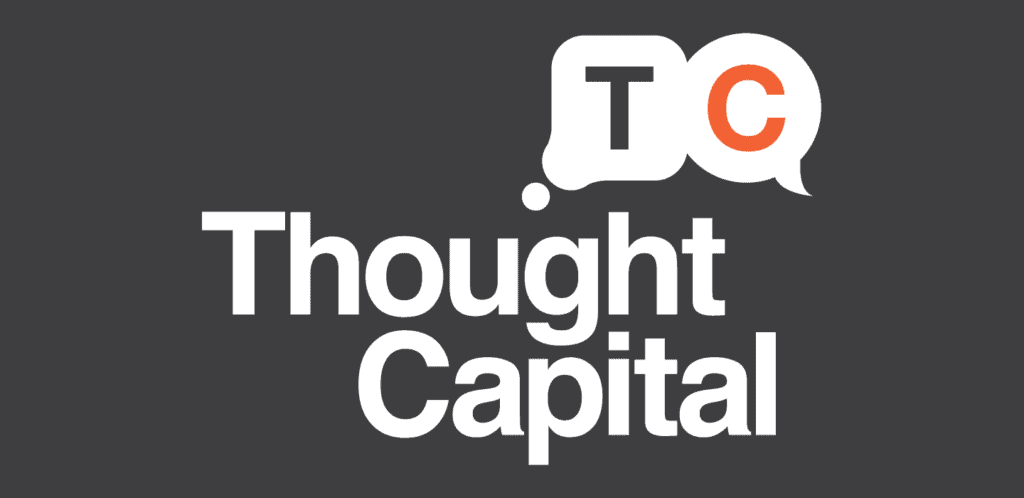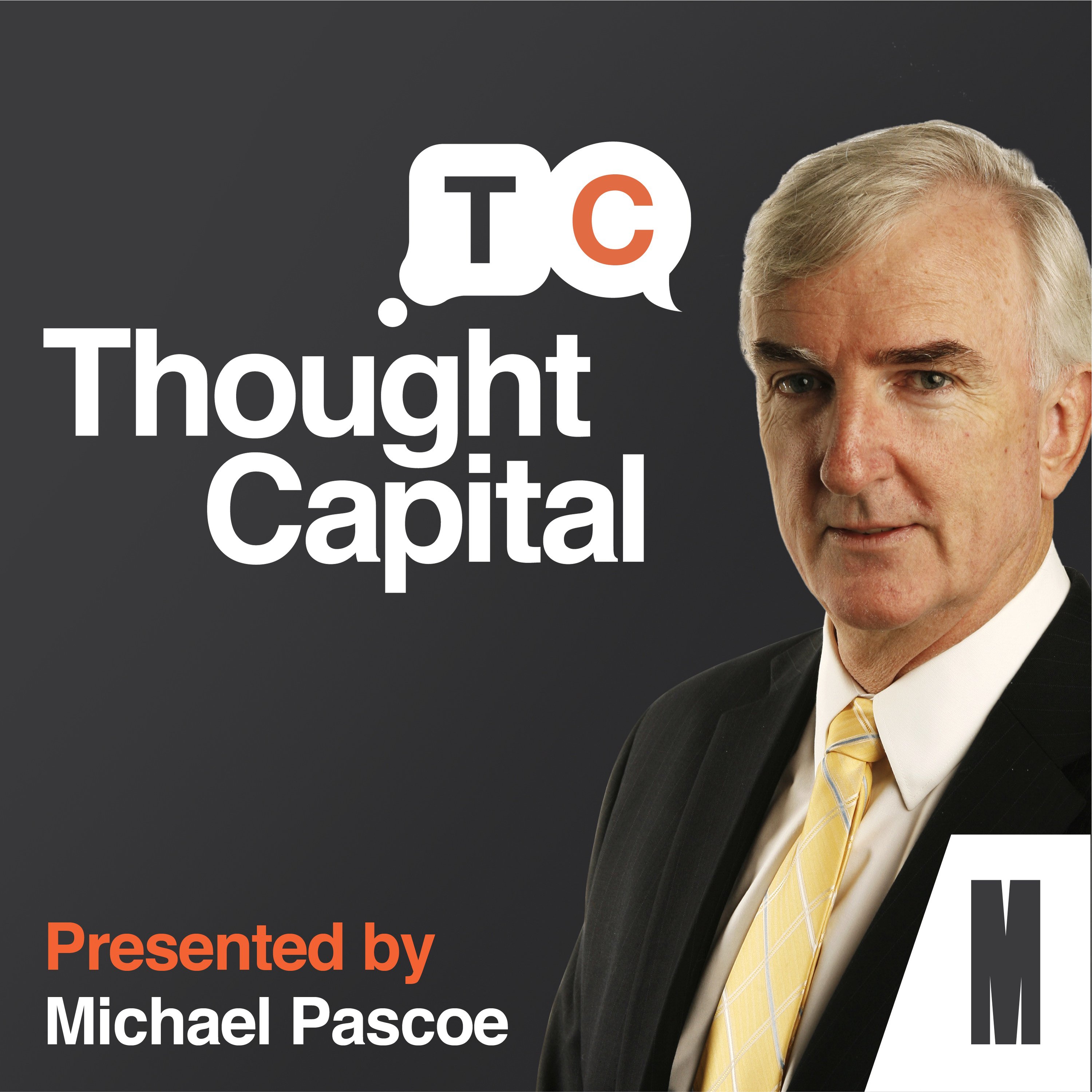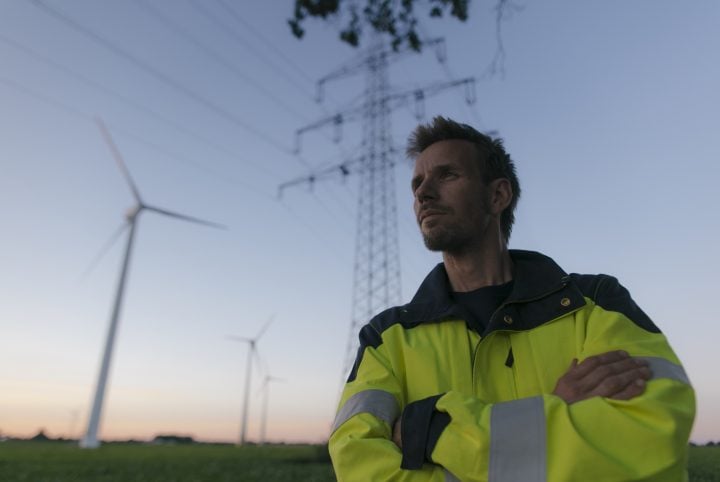Michael Pascoe: Welcome to Thought Capital. The podcast that delves into the wealth of ideas created by the experts at Monash Business School in Melbourne, Australia.
Michael Pascoe: Bullying, harassment, and discrimination should have no place in the workforce, but it continues.
Michael Giannopoulos: My client informed her employer that she was pregnant. She was demoted, her pay was cut, she was pressured to leave.
Michael Pascoe: The #MeToo movement unleashed recognition of just how prevalent it is. For all the progress we’ve made, there continues to be cases of workers discriminated against on the basis of their race, gender, religion, or sexual orientation. To deal with these issues, Victoria claims to have the most advanced Equal Opportunity Act in the country, yet it has limitations. Dr Dominique Allen is a senior lecturer within the Department of Business, Law and Taxation. She is here to discuss the Equal Opportunity Act’s shortcomings and why it is so hard to deal with discrimination. Dr Allen, what’s the problem with the Act?
Dominique Allen: The problem with Australia’s anti-discrimination laws are they rely on the individual who’s experienced discrimination to do something about them. There’s no agency, no other body that will take action like there is in competition regulation, let’s say, where you’ve got the ACCC.
Michael Pascoe: But only the individual can know. Isn’t that the case? I mean, who’s going to look into a workplace and find out?
Dominique Allen: Well, we could have a regulator that did that. If an individual could take a complaint to them and say, “Hey, this has happened to me at work or this has happened to me in a school,” and they might then say, “Oh, we’ve had other people in the same situation,” or, “Yes, this is a problem in this industry. We’ll do something about it.” But there isn’t that option at the moment.
Michael Pascoe: So the Victorian Equal Opportunity Act doesn’t help the individual beyond saying, “Here’s the law. Go use it.”
Dominique Allen: Only in the sense that the Victorian Equal Opportunity and Human Rights Commission that an individual can take a claim to and they will help facilitate it being resolved. They’ll bring the two parties together, let’s say it’s an employee and an employer, bring them into a room and say, “Can we resolve this?” If they can’t, then the employee can go to court if they want to.
Michael Pascoe: Well, this Act is eight years old. It replaces one from 1995. What changed between those two times?
Dominique Allen: There was an understanding that the Act was very focused on the individual and we do need to accommodate difference if we’re ever to have equality. So a couple of interesting mechanisms are introduced in the Act, things like an employee… employer, sorry, or a service provider or an educational provider, if they’ve got someone with a disability, they need to accommodate that disability if that’s reasonable. So there’s an obligation on the employer to do something. That’s one of the things the Act did. The act in its objects, which are used to interpret the Act by the court is very committed to substantive equality, progressively achieving equality. So it’s got all these lovely statements in it to try and work towards a more equal society. This Act has got more simplified definitions of discrimination. It shifts some of the onus of proving discrimination onto the respondent. So it’s designed to make it more accessible than the other Acts.
Michael Pascoe: So there’s been an evolution, but you’ve interviewed a number of lawyers who worked directly with it and had criticism of it.
Dominique Allen: Yeah, look, they’ve been happy with these definitions that I’ve mentioned, they’ve said, “Look, that makes things a lot simpler. We can actually focus on what actually happened, not spend our time and not have a person bringing a claim accrue lots of legal costs trying to argue over a definition. We can actually look at, well, what’s happened here? How can we resolve it?” So some of those things they’ve been happier with. Some of the things they haven’t been as happy with. There’s an obligation in the Act for employers and service providers to try and eliminate discrimination as far as they possibly can. But if they don’t, there’s no consequence that follows from that. There needs to be a penalty if you don’t do this or what’s the point of having that sort of provision in the law.
Michael Pascoe: That sounds like complaints from lawyers acting for those discriminated against. Do lawyers acting for employers see it differently?
Dominique Allen: I think the lawyers for employers and other respondents are also happier with the simplified definitions because it’s clear what has to be proved and what they have to show in a defence. But they have also said that having this obligation, this duty in the Act that isn’t enforceable doesn’t make a lot of sense. Sort of been described as a toothless tiger.
Michael Pascoe: Majority of people settle discrimination cases privately anyway, don’t they?
Dominique Allen: Yes, they do.
Michael Pascoe: Is that a bad thing? I mean, no one wants to get caught up in the legal system if they can avoid it.
Dominique Allen: There are many reasons both parties wouldn’t want to go to court. The problem is it makes it very privatised and very hidden so people could be forgiven for thinking, “Oh, discrimination doesn’t exist. We never hear about it. There are no cases. We didn’t know there was sexual harassment still taking place until this #MeToo movement happened. Who knew?” So the community isn’t aware that it’s still a problem, but also we’re not aware of the nature of discrimination, how it’s happening. Not only are the claims settled privately and they usually include a confidentiality clause, which means neither party can talk about them. The equal opportunity agencies here in Victoria, or in the other states and territories, don’t release much information about the nature of discrimination, the types of claims that they’re seeing, how this is impacting upon the workplace. So the whole system has become very privatised and very hidden.
Michael Pascoe: How does it impact on the workplace?
Dominique Allen: I suppose it depends on the nature of discrimination. It might be a workplace that has a restructure while a woman’s on maternity leave and comes back and finds she doesn’t have a job. The same woman wanting flexible working conditions when she’s returned from leave and not able to have that. They might be in the interviewing process or the recruitment process. Being discriminated against based on a disability or perceived disability. In the workplace there are many instances it could come out. Discrimination’s also prohibited in the delivery of goods and services and the provision of education. Education, it might be denying a place at a school to a child because of a disability and the school not being able to support that.
Michael Pascoe: Michael Giannopoulos is a solicitor with Anderson Gray Lawyers, a firm that works exclusively in employment law and solely on behalf of employees. He told me about a couple of workplace discrimination cases he’s recently worked on.
Michael Giannopoulos: An employee instructed me that she had attended a meeting where the company was weighing up its strengths and weaknesses. A manager actually just said that one of the weaknesses of the company was the number of female employees because they leave to have babies. That was actually put in a meeting. And the moderator absentmindedly actually wrote, “Babies is one of the weaknesses of the company,” on the board. My client, needless to say, complained about this and subsequently when my client informed her employer that she was pregnant and that she would require maternity leave… I think within a week of this she was demoted, her pay was cut, she had to move away from her team, she was pressured to leave.
Michael Giannopoulos: These weren’t isolated things. This was a general attitude from the employer. And so that was a matter of quite overt discrimination in the way that you usually don’t see. We managed to negotiate a resolution of the matter, so the client no longer wished to work for the employer and the employer, it seemed, no longer wished her to work for them. We reached an agreement whereby she was paid a sum of compensation and she resigned.
Michael Giannopoulos: I would mention another case which was an instance of sexual harassment. Client who worked in retail was sexually harassed on a work trip. It was a clear case of sexual harassment. Subsequently she made a complaint to her immediate manager and her immediate manager suggested that she consider resigning. While she was considering this and considering her options, the immediate manager simply told her office that she had resigned. We took instructions from her and filed an application in VCAT and the matter proceeded to a compulsory conference, which was conducted by a member of VCAT. We were able to, if you like, tell our client’s story and ventilate her concerns, and we were able to negotiate a compensator resettlement. And certainly the client was grateful for the process. It was a difficult day, needless to say, putting this case and negotiating a settlement, but my client was pleasantly surprised with the outcome.
Michael Pascoe: Michael Giannopoulos, there’s criticism that the current Act puts too much of the responsibility onto the employee, the individual. Do you see that and how does it manifest itself?
Michael Giannopoulos: I think one way this manifests is that a company often will be able to provide witness statements from a number of employees who are willing to make statements to back their employer. Whereas the individual claimant may struggle to obtain the same number of witness statements or might struggle to obtain any corroborating witness statements at all because, of course, people are reluctant to make statements which might reflect negatively on their employer if they’re current employees. Whereas if they’re previous employees, they may just want to stay out of it, or there might be an argument or a suggestion that this is kind of sour grapes from an embittered previous employee.
Michael Giannopoulos: Whichever way you look at it, there can be obstacles for employee in furnishing a court or a tribunal with statements from coworkers or former coworkers that collaborate their account. You can see the power imbalance in the difficulty an applicant might have with delay or with cost, and with stress that can be involved in pursuing a matter to hearing. Generally an applicant will bear the costs of pursuing that themselves. And equally the delay and stress involved might bear more heavily on them than it would on a company.
Michael Pascoe: Dominique Allen. Is it fair to say that there’s been an evolution from that original Act to the current one, and now you’re saying there’s a need for something more proactive to go further.
Dominique Allen: Yeah. When discrimination laws were passed 40 years ago, they were very effective at getting rid of blatant discrimination. Addressing a woman who wasn’t allowed to be a pilot was a famous case. So they’re very good at doing that, but discrimination has become more subtle and harder to address. And so there is a need to actually recognize this and have laws that do something about it. And when they first were introduced they were about race and sex, and then other attributes were added. Disability, age, we now have a whole raft of attributes that are prohibited, but they haven’t actually addressed inequality effectively.
Michael Pascoe: While you’re saying the law should be stronger, certainly I hear from businesses that it can already be abused, that a worker who was simply a dud worker can claim to be discriminated against. Is there a balance there?
Dominique Allen: There is a balance, and ideally the system would deal with this because the first step is to take the claim to the Equal Opportunity Agency and test it in some ways, test the merits. Ideally the dud employee would see, “Well, there’s no point going any further here. I don’t have a leg to stand on if it goes further.” So I guess that’s one advantage of the system and the way it operates now. But it is important to also recognise that there are strong cases that go to the commission and they also settle. And so it means that we’re not necessarily getting those strong cases that would develop the law going through to court because there are reasons employers don’t want to end up in court so they will settle those ones as well. They’ll resist the dud ones but also settle the strong ones.
Michael Pascoe: Which is not an unreasonable way for the law to work, is it?
Dominique Allen: No, but it does mean that if we have so few cases going through, the case law doesn’t develop. So it’s difficult in a lot of instances to know how the law would apply because there simply hasn’t been any cases on it. And I think that also makes it difficult for business. If they think, “Well, I’ve got this obligation under the Act, and I’ve got a State Act I have to comply with and a Federal Act, and we’ve got a Fair Work Act. I wonder how they all interact together. I wonder how this one applies in this circumstance because we don’t have any cases to tell us.”
Michael Pascoe: I’m feeling sorry for business at the moment having to deal with all those Acts.
Dominique Allen: It’s a complex regime. And it was complex already when we had State and Federal Acts, and then the Fair Work Act came about around the same time as this Equal Opportunity Act was introduced in Victoria, and so for the first time the Fair Work Act prohibited discrimination in the workplace. So suddenly there are three options and three regimes for employers to deal with. So it’s difficult because they’re also not consistent.
Michael Pascoe: This gets worse the more you talk about it. What chance of rationalising it?
Dominique Allen: I don’t think it’s on the political agenda at the moment.
Michael Pascoe: Its alleged weaknesses. It’s still claimed that this Victorian Act is the best in the country. Why?
Dominique Allen: Because it’s got better definitions of discrimination, obligations on employers and service providers to accommodate disability. The other unique mechanism it has is that a person who’s experienced discrimination doesn’t have to go through the Equal Opportunity Commission if they don’t want to. They can go directly to the Civil Tribunal in Victoria if they feel so inclined, so that can possibly speed up the process.
Michael Pascoe: Is there a consistent message that comes through when you interview lawyers working in this area?
Dominique Allen: The message that has come through is about the system itself. Both sides prefer to settle these things and there are valid reasons for doing so. The cost of pursuing litigation, the stress, the time involved for both sides, the risk of losing. And also for employers and other businesses, what one lawyer called to me, the page three factor. Not wanting to end up in the newspaper and be found to have discriminated against, or worse, sexually harassed somebody. It’s a commercial decision often for employers to settle these things.
Michael Pascoe: I’m Michael Pascoe. You’re listening to Thought Capital from Monash Business School.
Michael Pascoe: The #MeToo movement certainly exploded across the internet in 2017 and exposed the prevalence of sexual harassment across a number of industries and institutions. Women are all too familiar with experiencing sexual harassment. Has the #MeToo movement changed the way that we view harassment and discrimination now?
Dominique Allen: I don’t think it’s changed the way we view it, but I think it’s changed that people are talking about it more. It’s raised awareness. It’s led to the Australian Human Rights Commission conducting an inquiry into it and asking people to give them evidence about what is actually taking place in the workplaces so that we can then look at, “Well, do we need to reform the law and try and tackle this more effectively?”
Michael Pascoe: There is a constant evolution of greater expectation of what the law might be able to achieve. When you mentioned there was a time when a woman wasn’t allowed to be a pilot, I’m old enough to remember those days yet it shocks me. I’d forgotten. Now is there an expectation that we will move to the law being used for almost a quota system down the track?
Dominique Allen: I don’t think there’s an expectation. I think there might be a fear of that, of the law becoming that interventionist, but I think at this point, no, it’s more about the law of workplaces, businesses accommodating difference, recognising that now women can perform any role, any profession that they want to, but they have different needs often and we need to accommodate them if they’re going to participate fully.
Michael Pascoe: What should employers be doing to prevent discrimination in the workplace? What do they need to think about to get ahead of the game?
Dominique Allen: I think they need to be, if they’re not already aware of their legal responsibilities and legal obligations, and make sure that they’re training staff on what their responsibilities are, what their rights are, but also thinking proactively about how any changes I make in the workplace might impact upon someone with a disability. To do that from the outset rather than waiting until someone’s been discriminated against.
Michael Pascoe: And on the other foot, if an individual has been discriminated against, what should they do?
Dominique Allen: They should probably seek legal advice. If they’ve been discriminated against at work, for example, and they’ve been fired, under the Fair Work Act they’ve only got 21 days to lodge a claim before that door closes. So they’d want to seek legal advice and seek it soon about what the best avenue for addressing the discrimination is.
Michael Pascoe: Is it just the Act or is the legal system, the lawyers, are they failing the individual?
Dominique Allen: It illustrates some of the problems with the legal system. There are many lawyers that do work in this area pro bono, which means they do it for free. Solicitors and barristers that I’ve spoken to try and do that because it’s an area that they feel passionate about. But there’s not enough of that, and of course they need to sustain their own legal practice. They can’t work for free all the time. There’s a lack of legal aid funding. Victoria has some, but I know in other states and territories people can’t get access to legal aid if they’ve got a discrimination claim.
Dominique Allen: The other tricky part of it is if somebody decides to take their case to the Tribunal and they win, it’s very hard for them to get their costs, their legal costs paid by the other side. The Tribunal doesn’t like awarding those costs. So that might mean that they can take their claim, they can be successful, they can be given a damages award, and that might not be enough to cover their legal costs. Or they might, as some lawyers have said to me, they might break even. You certainly don’t end up probably the windfall in this area of law. And it makes it difficult for lawyers to represent people. Or even some of the lawyers I’ve spoken to will say, perhaps they’re representing somebody through their union and they’ll say, “Look, we can represent you at the Equal Opportunity Agency, but if you take this further, we can’t. We just don’t have the resources. We can’t fund it at court.”
Michael Pascoe: So if you had your way to change the Act, what’s the key change you’d make?
Dominique Allen: Take the entire burden off the individual to bring their claim and give an agency some power to address discrimination. The other change I would like to see is courts don’t order an employer to change their policies. They don’t order that a building should be made accessible. They don’t order systemic change. And I would like to see courts have the ability to order systemic change and do it more often.
Michael Pascoe: There are laws there to help the individual. There’s a legal system that’s meant to help the individual. What can really happen?
Dominique Allen: Well, I suppose a good way to illustrate this is a case from a couple of years ago from Sydney, a high profile case. Graeme Innes was the disability discrimination commissioner at the time, and Commissioner Innes is blind, and he experienced traveling on Sydney trains a number of times and them not providing audible stop announcements. So he didn’t know where he was. He, in his personal capacity, would make a claim at the Australian Human Rights Commission, try to resolve it. It wouldn’t go anywhere. And he did this a number of times before he finally thought, “I will take legal action,” again, in his personal capacity. Not as the commissioner because he didn’t have the power to do that as the commissioner.
Dominique Allen: So he took the claim in his personal capacity at the risk of great cost. It was in the Federal Court. If he lost, he would’ve had to pay the other side’s costs. But fortunately he won and RailCorp New South Wales was ordered to compensate him. So it was quite a long process. He had to try and resolve the claim privately. He then had to go to court, he had the risk of costs, and then he was awarded compensation.
Dominique Allen: Now, after the case had finished RailCorp New South Wales agreed that it would provide audible stop announcements, but the court didn’t order that, which means potentially the discriminatory practice was still in place and it would have taken another person to make another complaint and try and resolve it again. So I think this shows how it’s really focused on the individual and it puts quite a burden on the individual to change the system.
Michael Pascoe: So on a scale of 1 to 10, how do you score the current Victorian Equal Opportunity Act.
Dominique Allen: Seven. I think it’s doing better than the others, but there’s still room to improve.
Michael Pascoe: Always room to improve. Thank you Dominique Allen and Michael Giannopoulos from Anderson Gray Lawyers.
Michael Pascoe: You’ve been listening to Thought Capital from Monash Business School. You can find more episodes on iTunes, Spotify, and Stitcher, or wherever you listen to podcasts. This episode was produced by Tina Zenou, editor is Nadia Hume, sound production by Richard Edlin. Executive producer is Helen Westerman. Thought Capital is recorded at Monash School of Media, Film and Journalism.




